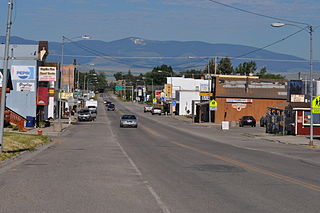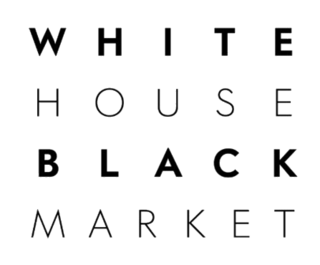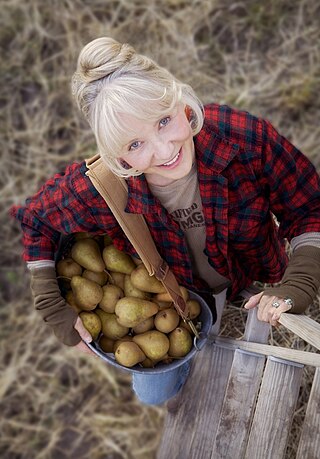Related Research Articles

White Sulphur Springs is a city in and the county seat of Meagher County, Montana, United States. The population was 955 at the 2020 census.

Eddie Bauer, LLC is an American clothing store chain headquartered in Seattle, Washington. Eddie Bauer sells its merchandise via retail stores, outlet stores, and online and via phone, with a call center in Groveport, Ohio. Its flagship store is in Bellevue at Bellevue Square. In addition to the three sales channels, the company operates a distribution and fulfillment center in Groveport, Ohio; an IT facility in Westmont, Illinois; and a distribution center in Vaughan, Ontario. Eddie Bauer is also a minority participant in joint ventures in Japan and Germany that include retail stores, catalogs, and websites. The company also selectively licenses the Eddie Bauer brand name and logo for various products sold through other companies including eyewear, furniture, bicycles, and, up until the 2010 model year, upper level versions of Ford Motor Company's Bronco, Explorer, Expedition and Excursion SUVs.

Fashion in the 1990s was defined by a return to minimalist fashion, in contrast to the more elaborate and flashy trends of the 1980s. One notable shift was the mainstream adoption of tattoos, body piercings aside from ear piercing and, to a much lesser extent, other forms of body modification such as branding.

Fashion of the 1980s was characterized by a rejection of 1970s fashion. Punk fashion began as a reaction against both the hippie movement of the past decades and the materialist values of the current decade. The first half of the decade was relatively tame in comparison to the second half, which was when apparel became very bright and vivid in appearance.

Shahnaz Husain is an Indian businesswoman who was the founder, chairperson and managing director of The Shahnaz Husain Group. She has received international acclaim for pioneering the Herbal beauty care movement and taking the Indian herbal heritage of Ayurveda worldwide. In 2006, she was awarded the Padma Shri, the fourth highest civilian award, by the Government of India for her contribution to the fields of trade and industry.

Lululemon athletica inc., commonly known as lululemon, is a Canadian-American multinational athletic apparel retailer headquartered in British Columbia and incorporated in Delaware, United States. It was founded in 1998 as a retailer of yoga pants and other yoga wear, and has expanded to also sell athletic wear, lifestyle apparel, accessories, and personal care products. The company has 574 stores internationally and sells online.

Serbian traditional clothing, also called as Serbian national costume or Serbian dress, refers to the traditional clothing worn by Serbs living in Serbia, Croatia, Bosnia and Herzegovina, Montenegro, and the extended Serbian diaspora communities in Austria, Australia, Bulgaria, Canada, France, Germany, Greece, Hungary, North Macedonia, Romania, Russia, Slovenia, United States, etc. Like any traditional dress of a nation or culture, it has been lost to the advent of urbanization, industrialization, and the growing market of international clothing trends. The wide range of regional folk costumes show influence from historical Austrian, Hungarian, German, Italian, and Ottoman Turkish presence. Nonetheless, the costumes are still a pinnacle part of Serbian folk culture. From the 19th century and onwards, Serbs have adopted western-styled clothing. This change has started in larger settlements such as cities and towns, although it was not uncommon to see rural women in traditional working costumes all the way until the end of 1970s. Today, these national costumes are only worn by some elderly in rural areas but are most often worn with connection to special events and celebrations, mostly at ethnic festivals, religious and national holidays, weddings, tourist attractions, and by dancing groups who dance the traditional Serbian kolo, or circle dance.

2000s fashion is often described as a global mash up, where trends saw the fusion of vintage styles, global and ethnic clothing, as well as the fashions of numerous music-based subcultures. Hip-hop fashion generally was the most popular among young people of all sexes, followed by the retro inspired indie look later in the decade.
Dockers is an American brand of garments and other accessories from Levi Strauss & Co.

White House Black Market is an American women's clothing retailer headquartered in Fort Myers, Florida. The multichannel brand, founded in 1985, specializes in upscale clothing.
Alice + Olivia is a New York City based contemporary clothing company with designer Stacey Bendet at the helm. The global brand launched at Barneys in 2002, and is now sold in over fifty countries.

The 2010s were defined by hipster fashion, athleisure, a revival of austerity-era period pieces and alternative fashions, swag-inspired outfits, 1980s-style neon streetwear, and unisex 1990s-style elements influenced by grunge and skater fashions. The later years of the decade witnessed the growing importance in the western world of social media influencers paid to promote fast fashion brands on Pinterest and Instagram.

Karen Kane is an American fashion designer. Her designs are known for their relaxed, California-inspired feeling.

Mary-Jane Butters is an American organic farmer, author, environmental activist, food manufacturer, and the publisher of MaryJane Farm magazine. She lives with her family on a farm in Moscow, Idaho. Her farm and business were featured in the December 1995 issue of National Geographic magazine.

Yoga pants are high-denier hosiery reaching from ankle to waist, originally designed for yoga as exercise and first sold in 1998 by Lululemon, a company founded for that purpose. They were initially made of a mix of nylon and Lycra; more specialised fabrics have been introduced to provide moisture-wicking, compression, and odour reduction.
C.C. Filson is an American privately owned outfitter and manufacturer of goods for outdoor enthusiasts. The company, based in Seattle, Washington, designs, manufactures, distributes and sells men's and women's outdoor clothing, accessories and luggage. Filson sells its products via company-owned retail stores, catalogs and the Filson website as well as through authorized dealers in the United States and international distributors. The company was originally established in Seattle in 1897 as C.C. Filson's Pioneer Alaska Clothing and Blanket Manufacturers to meet the needs of prospectors passing through Seattle on their way to the Klondike Gold Rush; as of 2012 the brand is owned by Fossil Group founder Tom Kartsotis, who also created Shinola Detroit.

Fashion and clothing in the Philippines refers to the way the people of the Philippine society generally dress up at home, at work, travelling and during special occasions.

In the US, Black-owned businesses, also known as African American businesses, originated in the days of slavery before 1865. Emancipation and civil rights permitted businessmen to operate inside the American legal structure starting in the Reconstruction Era (1863–77) and afterwards. By the 1890s, thousands of small business operations had opened in urban areas. The most rapid growth came in the early 20th century, as the increasingly rigid Jim Crow system of segregation moved urban Blacks into a community large enough to support a business establishment. The National Negro Business League—which Booker T. Washington, college president, promoted—opened over 600 chapters. It reached every city with a significant Black population.
Sarah Miyazawa LaFleur is an American businesswoman and fashion designer who is the founder and CEO of MM.LaFleur.

The fashions of the 2020s represent a departure from 2010s fashion and feature a nostalgia for older aesthetics. They have been largely inspired by styles of the early-to-mid-2000s, late 1990s, 1980s, 1970s, and 1960s. Early in the decade, several publications noted the shortened trend and nostalgia cycle in 2020s fashion.
References
- ↑ Furniss, Shannon (Winter 2013). "Red Ants Pants: Working Pants for Working Women". Montana Business Quarterly.
- ↑ Kivirist, Lisa (2016). Soil Sisters: A Toolkit for Women Farmers. New Society. pp. 177–178. ISBN 978-0865718050.
- ↑ Beurteaux, Danielle (22 October 2016). "Women who wrangle and weld need rugged clothing that works; entrepreneurs step up". The New York Times.
- 1 2 Juergen, Michelle (September 2013). "She Wears the Pants". Entrepreneur. 41: 72 – via EBSCOhost.
- ↑ Hull, Jeff (Summer 2010). "The Best Place for Tough Times". Montana Quarterly.
- ↑ Thomas, Andrew; Wilkinson, Timothy (2015). The Customer Trap: How to Avoid the Biggest Mistake in Business (2nd ed.). Apress. ISBN 978-1484203866.
- ↑ Stoddard, Russ (2017-09-19). Rise up : how to build a socially conscious business. Boise, Idaho. ISBN 978-1945449383. OCLC 967201162.
{{cite book}}: CS1 maint: location missing publisher (link) - ↑ Sedlack, Casey (18 June 2015). "If the Pants Fit ... Go Dance". Big Life Magazine. Archived from the original on 5 April 2018. Retrieved 4 April 2018.
- ↑ Wiltz, Teresa (20 October 2016). "Can The Arts Help Save Rural America?". Huffington Post. Retrieved 4 April 2018.
- ↑ Deedy, Alexander. "'This is the way democracy should work': Red Ants Pants owner attends small biz summit at White House". Helena Independent Record. Retrieved 4 April 2018.